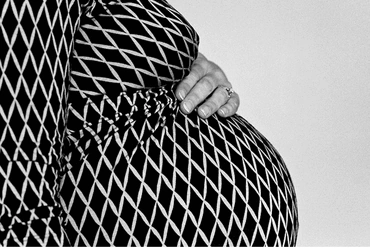1
And Jehovah said to▵ Abram, Go from thy land, and from thy birth, and from the house of thy father, to▵ the land that I will cause thee to see.
2
And I will make thee into◦ a great nation; and I will bless thee, and will make· thy name ·great; and be thou a blessing.
3
And I will bless those who bless thee, and will curse him who reviles thee; and in thee shall all the families of the ground be blessed.
4
And Abram went as◦ Jehovah had spoken to▵ him, and Lot went with him. And Abram was a son of five years and seventy years, when he went··out from Haran.
5
And Abram took Sarai his wife, and Lot his brother’s son, and their every acquisition that they had acquired, and the soul that they had made* in Haran; and they went··out to go to▫ the land of Canaan; and they came to▫ the land of Canaan.
6
And Abram passed··through into the land, even··to the place Shechem, even··to the oak··grove of Moreh; and the Canaanite was then▵ in the land.
7
And Jehovah appeared to▵ Abram, and said, To thy seed will I give this land. And there he built an altar to Jehovah, who appeared to▵ him.
8
And he moved··away from there to▫ the mountain on the east of◦ Bethel, and stretched··out his tent; with Bethel toward the sea, and Ai on the east. And he built there an altar to Jehovah, and called on◦ the name of Jehovah.
9
And Abram journeyed, going◦ and journeying, toward the south.
10
And there was a famine in the land. And Abram went··down toward Egypt to sojourn there; for the famine was heavy in the land.
11
And it was, as◦ he came··near to come unto▫ Egypt, that he said to▵ Sarai his wife, Behold, I pray◦, I know that thou◦ art a woman beautiful in appearance;
12
and it shall be, that the Egyptians◦ shall see thee, and they will say, This is his wife; and they will kill me, and will make· thee ·to··live.
13
Say, I pray◦, thou◦ art my sister; so··that it may be··well with me on◦ account··of thee, and that my soul may live because··of thee.
14
And it was, as Abram came to▫ Egypt, that the Egyptians◦ saw the woman, that she◦ was very beautiful.
15
And the princes of Pharaoh saw her, and praised her to▵ Pharaoh; and the woman was taken to Pharaoh’s house.
16
And he did··well to Abram on◦ account··of her; and he had◦ flock and herd, and donkeys and menservants, and handmaids and she··donkeys, and camels.
17
And Jehovah plagued Pharaoh with great plagues, and his house, on··account··of the matter* of Sarai, the wife of Abram.
18
And Pharaoh called to Abram, and said, What is this that thou hast done to me? why didst thou not tell me that she◦ is thy wife?
19
Why saidst thou, She◦ is my sister? and I might have taken her to me for a woman. And now, behold thy wife; take her, and go.
20
And Pharaoh commanded the men◦ concerning him; and they sent· him ·away, and his wife, and all that he had◦.







